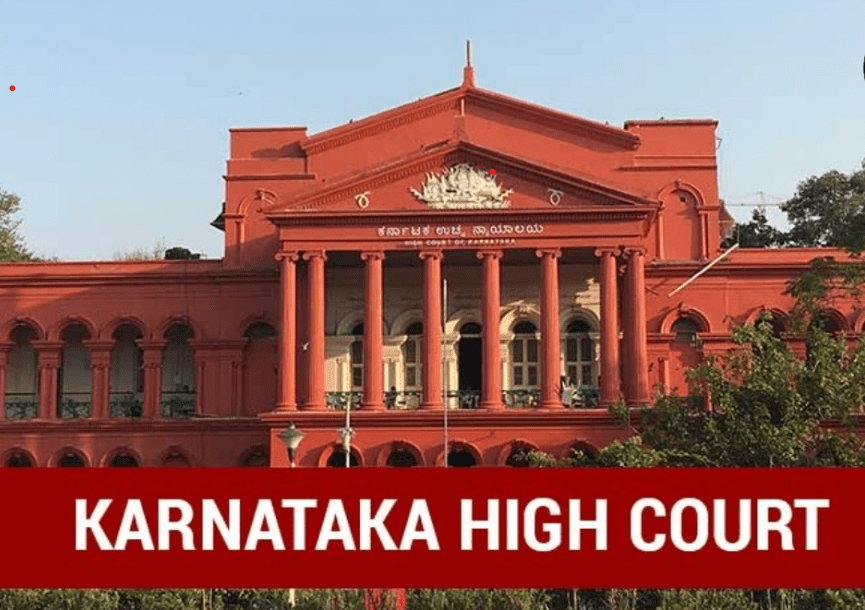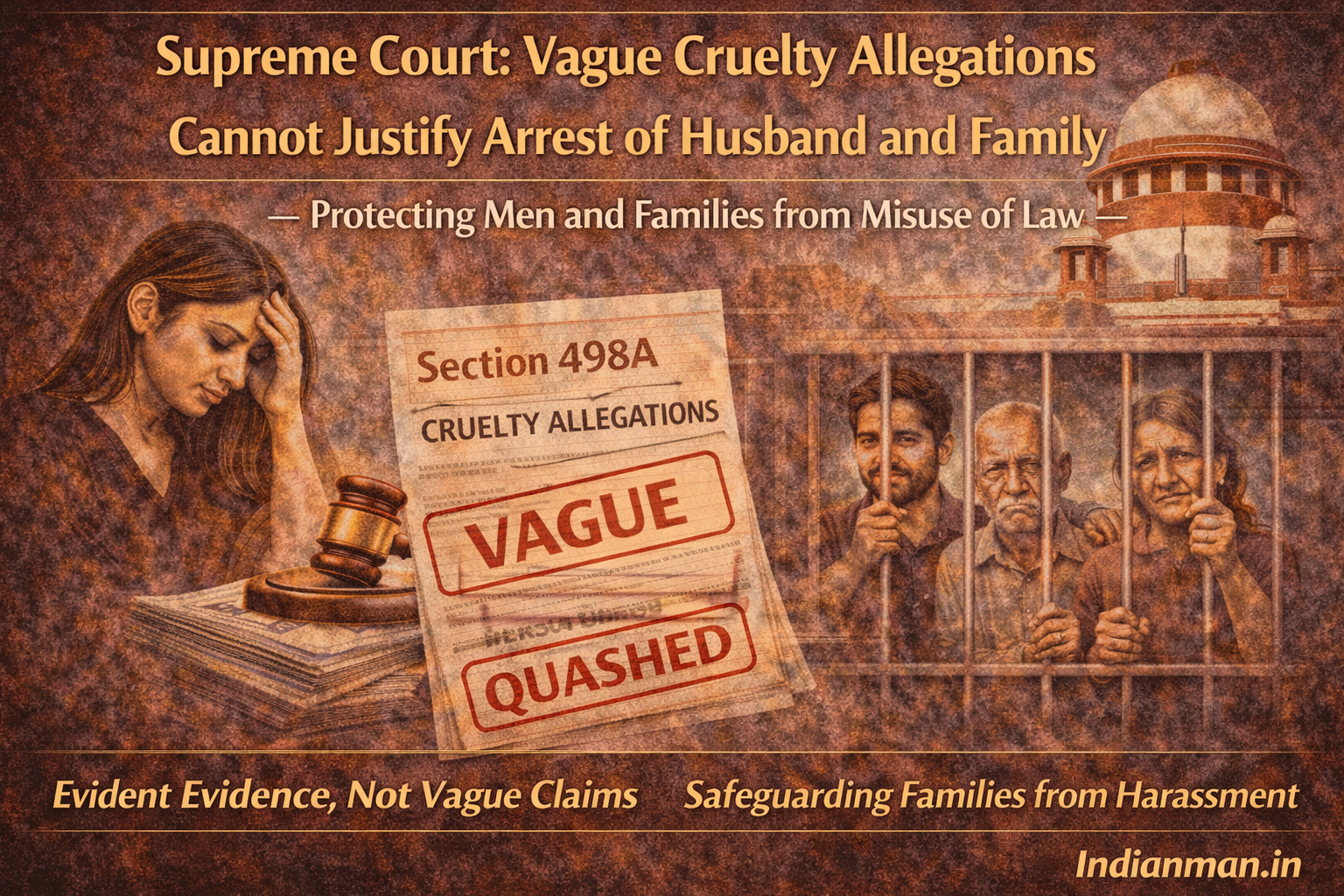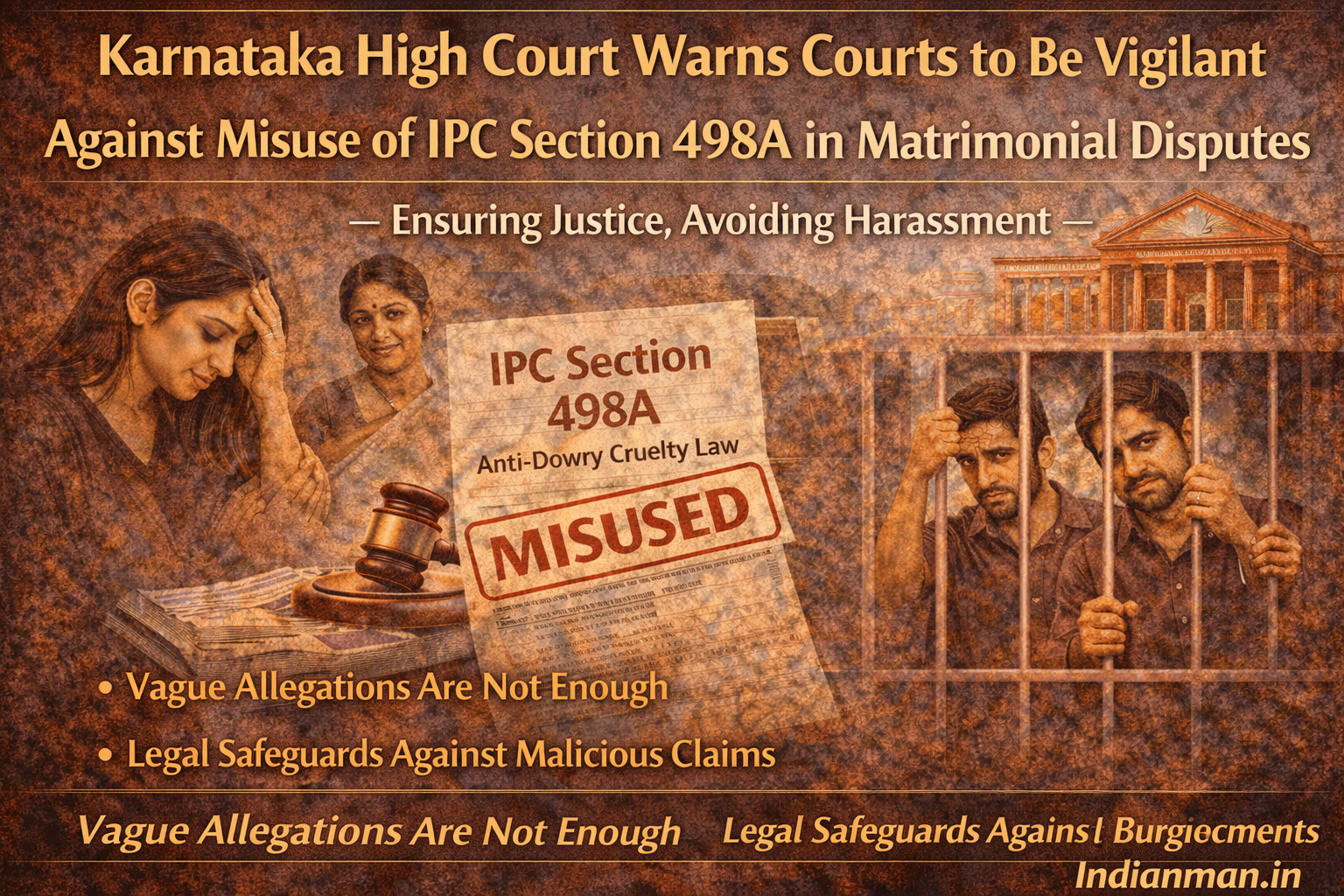Karnataka High Court: Asking Wife to Pursue Education and Find Job Not Cruelty
The Karnataka High Court has ruled that a husband suggesting his wife pursue further education and find a job cannot be considered cruelty. Justice Dr. HB Prabhakara Sastry allowed the revision petition filed by Dr. Shashidhar Subbanna and his mother, setting aside their trial court convictions for offenses under Section 498-A and Section 34 of the Indian Penal Code, as well as Sections 3 and 4 of the Dowry Prohibition Act.
The couple resided in the US, and the wife complained that her husband asked her to continue her studies and find a job to help maintain the family and cover monthly expenses. The court stated, “It cannot be understood how a husband’s suggestion for his wife to acquire more knowledge and pursue higher studies would amount to cruelty.”
The court noted that both the complainant and accused were highly educated and had discussed their future plans, including further education and job opportunities, before marriage. The husband’s suggestion for his wife to pursue education was not sudden or without prior discussion.
The wife also alleged that her husband did not want to have a child for three years and that his family pressured her about having a child. The court found that discussing family planning is a common and necessary conversation between spouses and does not constitute harassment or cruelty.
Additionally, the complainant alleged that the accused received cash, a golden ring, and a Sherwani as dowry. However, witnesses, including the complainant’s elder brothers, admitted that exchanging valuables was customary in their families. The court found no substantial evidence to support the dowry demand claims.
The court observed that the accused’s income in the US was substantial and there was no corroborative evidence to support the dowry demands. The weak and self-serving oral evidence presented by the complainant and witnesses was insufficient to establish any demand or acceptance of dowry.
Based on these observations, the court acquitted the accused.
Case Title: Dr. Shashidhar Subbanna vs. State
Be a part our social media community:
Facebook: https://www.facebook.com/IndianMan.in?mibextid=ZbWKwL
Instagram:
https://www.instagram.com/indianman.in?igsh=MWZ2N3N0ZmpwM3l3cw==



